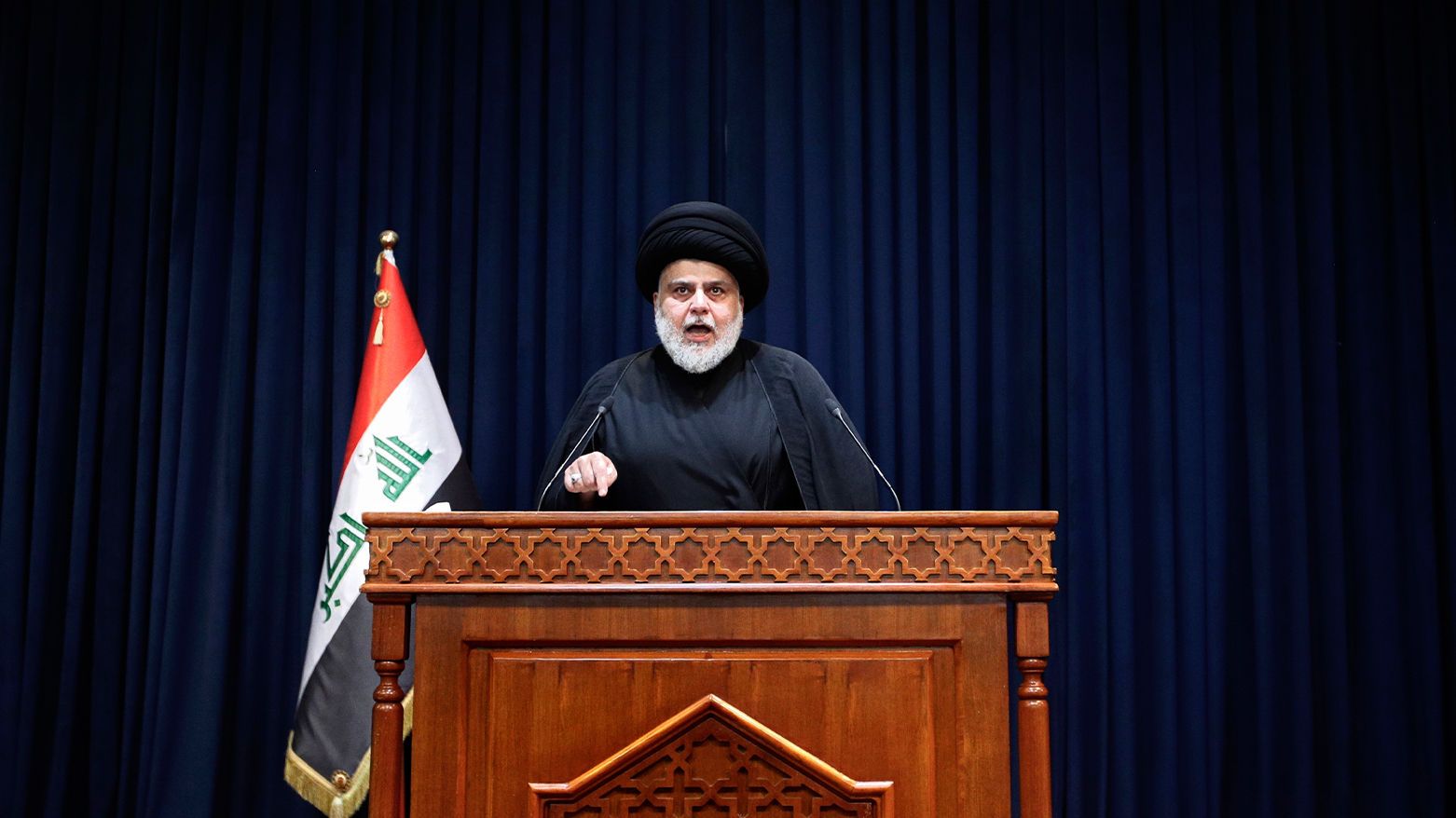Sadr renames movement to 'Shiite National Movement' in political resurgence

ERBIL (Kurdistan 24) - On Thursday, Iraqi media and some social media accounts affiliated with the Sadr movement published a photo of a document in Arabic stating "Shiite National Movement," with Muqtada al-Sadr's name and signature.
Iraqi political analysts suggest that the new name of Muqtada al-Sadr's movement carries multiple meanings and symbols, reflecting the movement's previous political campaigns, which emphasized nationalism and opposition to foreign interference in Iraqi affairs, particularly from Iran.

Al-Sadr's return to the political arena was anticipated following the withdrawal of the Sadrists from the Iraqi parliament and their absence from the provincial council elections.
In the 2021 parliamentary elections, the Sadrists won 73 seats, most of which were allocated to coalition parties due to their withdrawal from the political process, leaving the Shiite component predominantly represented by the Coordination Framework.
On March 18, 2024, al-Sadr visited the residence of Shiite Supreme Leader Ayatollah Ali al-Sistani in Najaf, holding a half-hour meeting whose contents were not disclosed.
Al-Sadr's visit to al-Sistani, using his father's car, was interpreted by the media as a step toward the Sadrists' reengagement in the political process. However, there is disagreement among parties within the Coordination Framework regarding the significance of al-Sadr's return, particularly with the rule of law led by Nuri al-Maliki.
Al-Sadr's father, Mohammed Baqir Sadr, was born on May 1, 1935, in Kazimiya. He founded the Islamic Da'wah Party and was executed in 1980 during Saddam Hussein's regime on charges of spying for Iran.
"The return of the Sadrists, who enjoy a broad popular base, will alter the political landscape in Iraq and garner the attention of many Shiite parties, given the choice of the name Shiite National Movement," stated political analyst Ala Azawi to Iraqi media.
Meanwhile, al-Sadr is not prepared to reenter the political scene without preconditions, which include addressing the issues that led to his previous withdrawal. Nonetheless, he is expected to demonstrate more flexibility regarding alliances with Shiite parties, emphasizing the national and religious (Shiite) aspects of his movement.
At the end of last month, the newspaper Al-Arab reported, citing several sources, that Muqtada al-Sadr is no longer inclined to boycott the political process but intends to participate in the upcoming parliamentary elections, anticipating early elections.
On March 28, 2024, al-Sadr's office instructed the formation of several central committees comprising movement leaders, tasking them with engaging in various community activities such as attending funerals and celebrations, visiting martyrs' families, delivering sermons in mosques, assisting the sick and disabled, and strengthening ties with the populace.
Additionally, the newspaper Arabi al-Jadeed reported in mid-February that al-Sadr has recognized the repercussions of his withdrawal from the political scene and understands that failure to fill the resulting void may allow opposition forces to take advantage. If al-Sadr continues to boycott the political process for an extended period, his popular support base may diminish, according to the report.
The newspaper suggested that al-Sadr is expected to resume negotiations with various parties upon his return to the political arena to prepare for participation in the 2025 parliamentary elections.
On August 29, 2022, al-Sadr announced his resignation from political activities via Twitter, stating, "I announce my resignation from political work." Despite this decision, he affirmed that Najaf would always remain a significant religious center.
On November 13, 2023, al-Sadr urged his supporters to boycott the provincial council elections, arguing that their non-participation would undermine the legitimacy of the elections both domestically and internationally.
